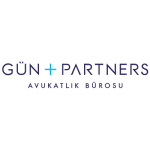The Istanbul IP Court handed down its first precautionary injunction for indirect use of a patent. The case, which involves a combination drug patent, sheds much-needed light on Article 86 of the Turkish IP Code.
Much to rights holders’ dismay, Article 141 of the Turkish IP Code 6769, which lists acts that constitute patent infringement, does not include actions constituting indirect infringement. However, a provision in Article 86 does give patentees a right to prevent indirect use. This is similar to provisions in Article 60(2) of the UK Patents Act 1977 and Part 10 of the German Patent Law.
Article 86, titled as ‘Prevention of the indirect use of the invention’, states that:
The patent owner shall be entitled to prevent third persons from giving the elements and instruments related with a part of invention which enables the implementation of the invention which is subject to the patent and constitutes the essence of the invention, to persons who are not authorised in the use of the invention which is subject to the patent. It is necessary for the referred third persons to know that these elements or instruments are sufficient to implement the invention and that they will be used for these purposes or this condition should be sufficiently clear for this provision to be applicable.
This article was first implemented in a court action, in which the patentee wished to prevent the indirect use of its patent that contained a combination of active ingredients X and Y. Protecting the scope of the patent did not require that this combination be present in the same pharmaceutical form. Considering ongoing use and increasing damages, the patentee also asked for a precautionary injunction (PI).
The challenge of the case lay in the fact that the defendant was manufacturing and marketing a drug, which relied on the fact that active ingredient (X) (API (X)) would be prescribed, used and traded with API (Y). The defendant was targeting the combination drug market, which constitutes 95% of the whole market. Further, the defendant knew that API (X) was not being used solely for the relevant patient population (even if it were, the patient population using API (X) is around 5%, which does not commercially justify manufacturing and marketing a drug with API (X) only). The defendant argued that it did not indirectly use the patent as it manufactured and marketed the drug with API (X) only, and accused the patentee of abusing patent rights as this lawsuit was launched after the compound patent protecting API (X) had expired.
The Istanbul IP Court determined that the combination patent, rather than the expired compound patent, was the subject of the case. The court sent writs to the Social Security Institute (SSI) and the three biggest hospitals in Turkey, asking them to inform the court whether the drug including API (X) was being used, prescribed and/or reimbursed together with API (Y).
All responses from the SSI and hospitals confirmed that the drug had been used, prescribed and/or reimbursed in combination with API (Y). Specifically, the SSI emphasised that among 234 patients, 43 were prescribed with API (X) only and 113 were prescribed with API (Y).
In response, the patentee argued that all the requirements of Article 86 had been fulfilled, since the defendant (i.e. the third party) sells, trades and provides the generic product containing the API (X) (i.e. the essential element of the combination patent) to unauthorised parties, which enables the implementation of the patent by unauthorised entities (e.g. pharmacists and pharmaceutical warehouses). Consequently, the patentee demanded that the court grant a PI to prevent the SSI’s reimbursement of the defendant’s drug when it is prescribed with API (Y). The patentee explicitly stated that it required no measures preventing reimbursement, or any kind of use or market, of the defendant’s drug, when it is not prescribed, used or marketed with API (Y).
The defendant tried to defend itself by referring to Article 86(2), which states that if the elements or instruments stipulated in the first clause are always available on the market, then the provision of the first clause does not apply unless a third party provokes or induces unauthorised persons to perform the above-mentioned actions. Accordingly, the defendant argued that API (X) can always be found on the market and therefore it did not provoke or induce anyone to implement the invention by using it.
Unfortunately, there is no case law in Turkey on interpreting when and which elements should be deemed to be always available on the market. However, the patentee looked to German and UK case law, claiming that it was impossible to hear the claim that products comprising API (X), which may only be provided from pharmacies on prescription and used for treatment of specific conditions, are not deemed to be readily available.
The court granted a PI without referring the case to a court expert examination or ordering a guarantee bond. The PI decision mainly suspends reimbursement of the defendant drugs when prescribed with API (Y).
This case helps to clarify Article 86 of the Turkish IP Code.
Read Gün + Partners' trademarks-related article as a part of the Future of IP—Turkey series: A look at brand enforcement during the COVID-19 pandemic
Selin Sinem Erciyas |
|
|---|---|

|
Partner Gün + Partners T: +90 212 354 00 24 Selin Sinem Erciyas is a partner at Gün + Partners. She joined the firm in 2006 and became a partner in 2014. She specialises in life sciences and IP with a special focus on patents and utility models. Selin has been involved in a number of advisory and litigation matters in all fields of IP and has handled hundreds of contentious and non-contentious administrative oppositions and court actions involving IP rights, particularly in relation with protection of patent rights. She regularly advises on patent infringement actions, declaration of non-infringement actions and nullity actions. She often represents multinational pharmaceutical companies before the Ministry of Health on regulatory issues and examinations. Selin holds a bachelor’s degree in law from Ankara University and a LLM from Ludwig Maximilians University, Munich. |
Zeynep Çağla Üstün |
|
|---|---|

|
Senior associate Gün + Partners T: +90 212 354 00 00 Zeynep Çağla Üstün joined Gün + Partners in 2014 and she is an associate. Her expertise is on life sciences, competition and IP with special focus on patents and utility models. Zeynep’s practices are mainly focused on representing the clients before the civil courts for industrial and IP rights and commercial courts in patent, utility model, trademark and design invalidation actions. She also has experience working on infringement actions, unfair competition actions, providing legal consultancy regarding these and assisting clients through the application and opposition procedures before the Turkish Patent and Trademark Office. Zeynep also represents clients before the administrative courts in life sciences matters and provides legal consultancy in competition law field. |













